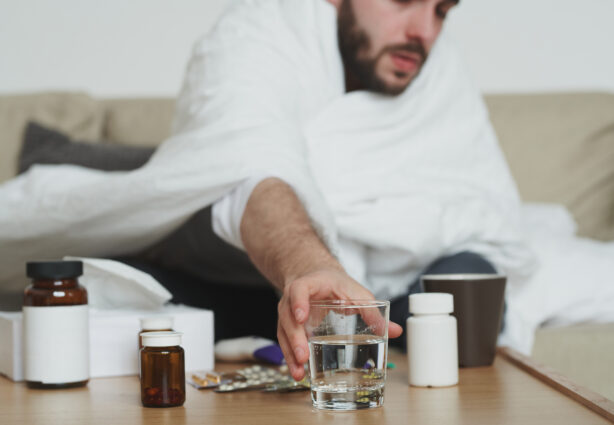Unlock Your Full Potential
University of Connecticut's Student Sobriety & Wellness Resource Center
Ensuring a Safe, Empowering Experience for All UConn Students

College life comes with its unique set of challenges and pressures.
In an environment where experimentation is often normalized, choosing sobriety is not just an act of self-care but a powerful statement of strength and independence. Embracing sobriety opens doors to clearer thinking, better health, and true enjoyment of your college experience.

About Us
Why UConn?
Learning and academics are about exploring the things that interest you, growing with that knowledge, and finding the path on which you'll be most successful. With 14 schools and colleges and more than 115+ undergraduate majors, you'll find what you're looking for at UConn.
Or create your own major if you don't find one just right.
Students who regularly use substances have lower GPAs.
Regular substance use among students is linked to lower GPAs, reduced study time, increased absenteeism, and a higher likelihood of unemployment after graduation*. Additionally, it often correlates with serious health and psychiatric issues, impacting both short-term well-being and long-term life outcomes.


60 percent* of undergrads have consumed alcohol in the past month.
Over 60% of full-time college students have consumed alcohol, and a staggering 39% report engaging in binge drinking over the past month. Excessive alcohol consumption, particularly binge drinking, poses serious risks for college students, including academic difficulties, health problems, and increased risk of substance abuse.
13.5 percent
Americans aged 12+ have used drugs in the past month
50.0 percent
Americans aged 12+ have used drugs at some point in their lifetimes
39.0 percent
Americans suffering from addiction are aged 18-25
Recognizing the Signs of a Problem
College years are a formative period during which young adults prepare for what the rest of their lives will be. Due to the prevalence of alcohol and drugs, it's important to recognize the signs of a substance use disorder (SUD) early. Misuse of mind-altering substances may seem to alleviate the stress of college life, but there's a fine line between experimentation and chemical dependency.
Academic Decline
Substance abuse can significantly affect your academic performance. It can lead to decreased focus, missed classes, and poor grades, jeopardizing your academic goals.
Loss of Health
Regular substance use poses serious health risks, including both physical and mental health issues. These can range from immediate effects of your impaired judgment to STIs and other long-term afflictions.
Social Consequences
Substance abuse can strain relationships with family, friends, and peers. It can lead to isolation, misunderstanding, and conflicts, affecting your social life and support network.
Legal Issues
Engaging in substance use can lead to legal problems, including penalties for possession or use, which can have lasting effects on your future career and opportunities.
Addiction
Repeated substance use can lead to dependency and addiction, making it difficult to quit and requiring professional treatment for recovery.
Treatment Programs
How is Addiction Treated?
Addiction treatment is multifaceted and varies based on individual needs. The American Society of Addiction Medicine outlines several levels of care, each designed to provide the appropriate intensity and type of support.
You're 'Never Alone' in This
Seeking Support for Addiction

+

Over 60 percent of full-time undergraduate students have consumed alcohol, and a staggering 39 percent report engaging in binge drinking over the past month. Excessive alcohol consumption, particularly binge drinking, poses serious risks for college students, including academic difficulties, health problems, and increased risk of substance abuse.
UConn Student Health and Wellness
All enrolled UConn students have access to services at the UConn Student Health and Wellness (SHaW) offices. This includes medical/primary care, mental health services, and more.
For more information or to schedule an appointment, click here.
Online Support Group
College students have a lot on their plates even before an alcohol or drug problem. Whether you're actively struggling or seeking support over a friend's growing problem, Never Alone Recovery's free weekly online support group, co-hosted by the Keys to Freedom Foundation, is an amazing resource for you.
With regular guest speakers and weekly topics to discuss, all UConn students are welcome to attend anonymously Wednesdays at 7PM CST. Access the meetings — and sign up for notifications to know when the lobby opens each week — by clicking here.
Wellness Workshops
You may not even realize how accessible wellness workshops have become. At gyms, recreation centers, and other communal spaces, experienced professionals host regular seminars to teach attendees various practices to improve their mental or physical health. And following the pandemic, many of these seminars have gone digital and are available remotely. Simply search "[your query] workshops online" to see what's available to meet your needs.
Similarly, self-help podcasts are another great resource to help students have healthier and more productive college experiences.
Outreach & Volunteering Opportunities
At UConn, we believe in the power of community engagement and the positive impact it can have on personal growth and recovery. Our Outreach & Volunteering Opportunities are designed to provide meaningful experiences that foster a sense of purpose, connection, and contribution.
Participating in various outreach programs is not just a chance to make a difference in the lives of others; these initiatives give students experiences beyond the campus with the broader community, offering new perspectives and valuable life experiences.
Recovery Consulting & Placement
Never Alone Recovery is an organization dedicated to providing a clearer path to health for individuals suffering from alcohol or drug problems. Sobriety is a daunting concept for anyone but especially for a college students. Having the right support can make all the difference.
Recognizing that finding the right treatment is crucial, Never Alone Recovery offers complimentary substance abuse treatment placement services. Whether you're grappling with the challenges of substance use yourself or concerned about a friend, the Never Alone team can guide you through the process of finding suitable treatment. Their supportive and understanding team takes into account your individual circumstances, preferences, and needs.
Never Alone Recovery is on a mission to make a successful and enduring recovery attainable for all.
Twelve Step Programs
Twelve step programs have long been a cornerstone in the journey towards sobriety, offering a structured, community-based approach to overcoming addiction. Rooted in principles of mutual support, accountability, and personal growth, these programs provide a powerful framework for recovery.